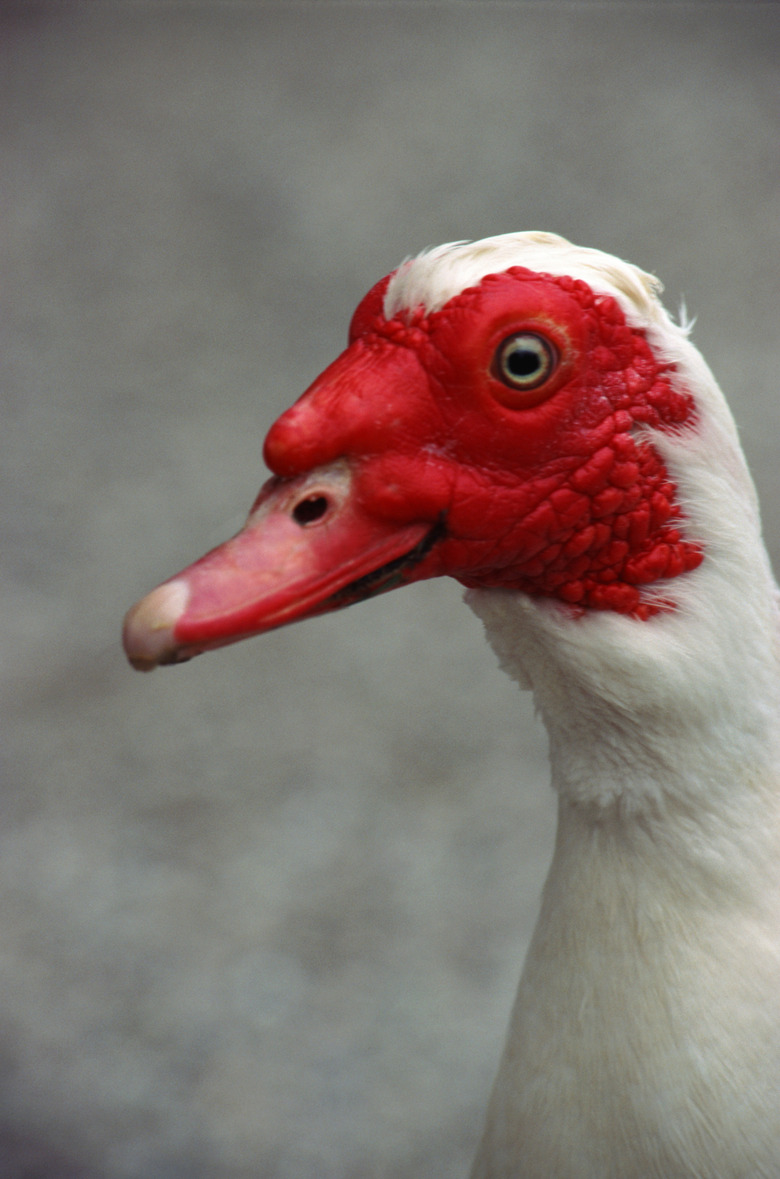How To Control The Aggression In A Muscovy Duck
Warning
If you cover your Muscovy duck's beak to curb aggression, make sure you do not cover his airway.
Muscovy ducks are native to South America, and they are the only breed of duck kept in captivity today not descended from the wild Mallard. Owners of Muscovy ducks enjoy them for several reasons: they are quiet, they have interesting plumage and drakes have a larger amount of meat than other ducks, according to an article in "Backyard Poultry." However, Muscovy drakes can sometimes be aggressive. When this happens, it's important to address the problem immediately. Otherwise, an aggressive duck can cause bruises and injury to people and other ducks.
Step 1
Separate the duck from other ducks if it is displaying aggression towards them. Provide it with a spacious, fenced-in area of its own. Muscovy ducks are very sociable, so be sure to pay attention to the drake.
Step 2
Work on training if humans are the target of your Muscovy duck's aggression. The site "Live Ducks" recommends holding an aggressive duck's beak shut while firmly saying, "No".
Step 3
Spend time every day in close contact with your duck, petting it, feeding it from your hand and talking to it. It will take some ducks longer than others to realize that you are not a threat.
Step 4
Provide a mate for your duck. Sometimes, aggression is due to suppressed sexual urges. Ducks are ready to mate at 5 or 6 months of age.
Step 5
Discourage aggression at the first sign of it. Though it might be cute to see a baby duck attacking people and things, aggression will only get worse as a duck gets older and larger. A male Muscovy duck can weigh up to 12 pounds, which is enough to knock over other animals and children.
